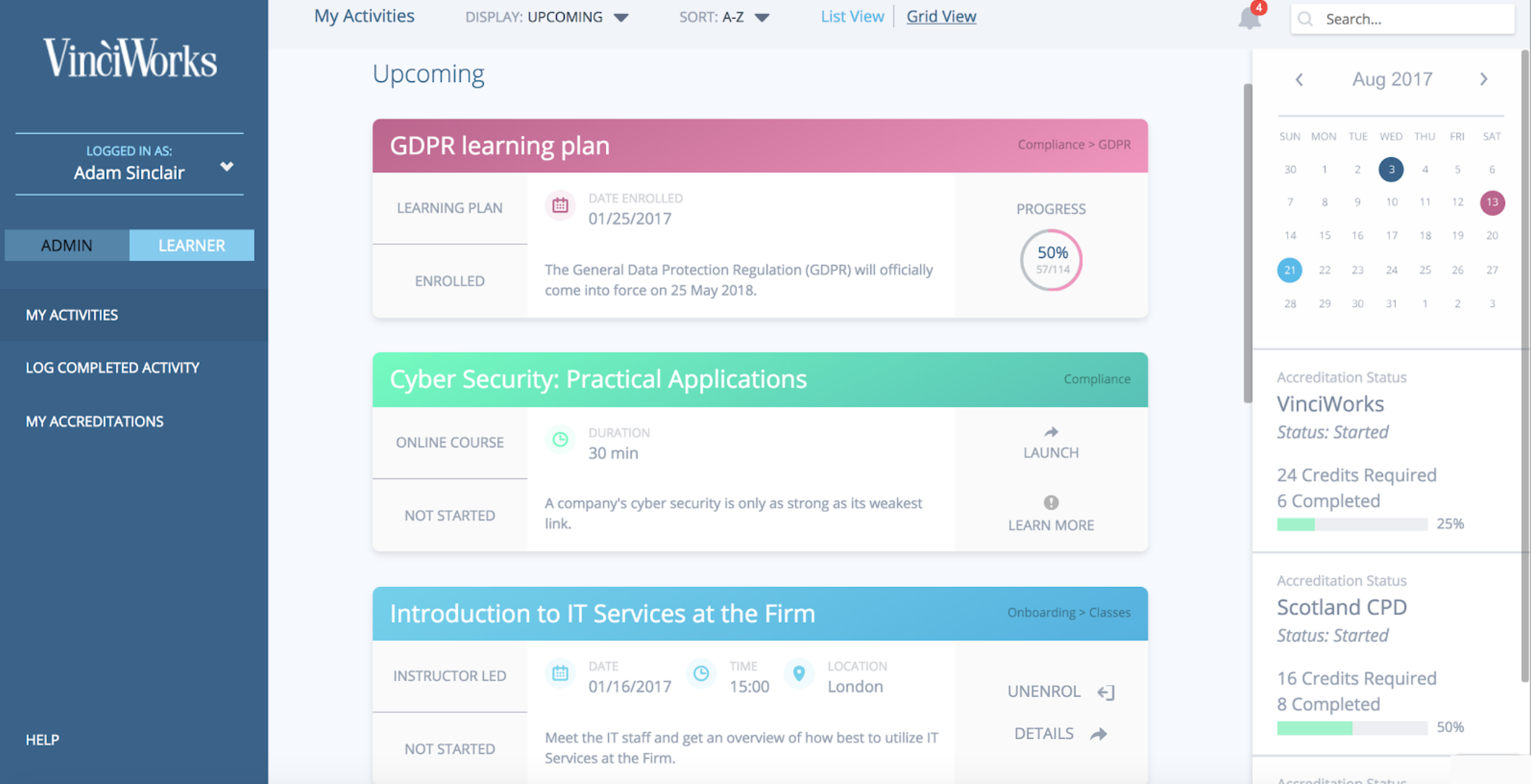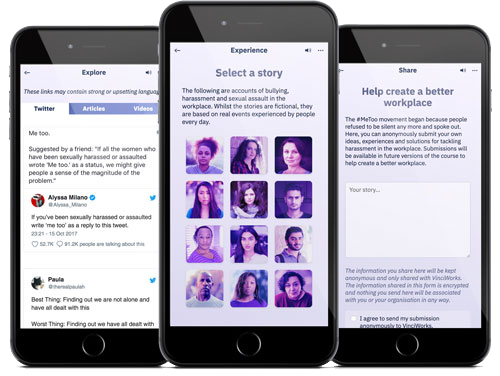On-demand learning management system webinar

VinciWorks recently hosted a webinar taking attendees through the new learning management system, including which features will be added when we update from LMS 5 to LMS 6. You can watch the full webinar, as well as access the slides and helpful resources, below. Watch webinar Some of the features that will be included in […]
New SRA regulatory arrangements – are you prepared?
Since May 2014, the Solicitors Regulation Authority (SRA), as part of their Looking to the Future program, have carried out a number of public consultation papers regarding reforms to allow greater flexibility for solicitors and law firms, with the aim to make legal services more accessible to the public. In August 2018, the SRA applied […]
Currys PC World Data Breach
Currys PC World is the latest in a long line of corporations to suffer a large-scale data breach, but the positive news to take from the story is the swiftness and clarity of their response. One of our colleagues, as a Currys PC World customer, received an email explaining the loss of data, what was […]
VinciWorks’ sexual harassment training shortlisted for Learning Technology Awards

VinciWorks’ new #MeToo-inspired sexual harassment training solution, MyStory: Harassment and Bullying at Work, has been shortlisted for “Best use of mobile learning” at the prestigious Learning Technologies Awards 2018. MyStory directly applies the powerful lessons of the recent global outcry against sexual harassment in the workplace through innovative storytelling and a mobile-first design. Soon to be […]
Workplace sexual harassment – Frequently Asked Questions

VinciWorks continuously receives questions on the topic of sexual harassment. We have separated our answers to the questions into three categories: general questions about sexual harassment, questions about behavior at work and questions frequently asked by supervisors. The full list of questions and answers is included in VinciWorks’ sexual harassment training, MyStory: Harassment and Bullying […]
On-demand webinar – Complying with Changes to New York Harassment Law

Governor Cuomo and Mayor De Blasio have been busy putting the city and state on the right side of #MeToo, the global anti-sexual harassment movement. A flurry of new laws and requirements on New York State and City businesses have been added to the books, with more coming into force over the next few months. […]
Upcoming risk masterclass — Introduction to new risk identification methods

17 October, 8:30am — 12:00pm, London What if you could enhance your risk identification process, better facilitate risk conversations, reveal awkward risks and black swans, and present those risks to the leadership with clarity and insight? VinciWorks invites you to attend a risk identification masterclass to learn breakthrough techniques and develop your own risk identification toolkit. This class […]
How do biases affect risk identification?

When making any decision, from deciding what to have for dinner to buying a house, it’s possible that many biases will come into play. For example, a previous deal for a house that fell through may well result in anxieties that it could happen again. Alternatively, the meal you made last week was so good […]
Sanctions regulations – Frequently Asked Questions

VinciWorks recently hosted a webinar on sanctions that gave guidance on the latest regulations, the affect Brexit will have on sanctions and more, the Iran deal and more. During the webinar, Director of Course Development took several questions on the topic and we have continued to answer the questions. Here are all the questions that […]
Money laundering whistleblowing policy template

The Money Laundering Regulations 2017, which transpose the Fourth EU Money Laundering Directive into UK law, came into full force on 26 June. The Fourth Directive includes some fundamental changes to the anti-money laundering procedures, including changes to customer due diligence, a central register for beneficial owners and a focus on risk assessments. For example, […]






